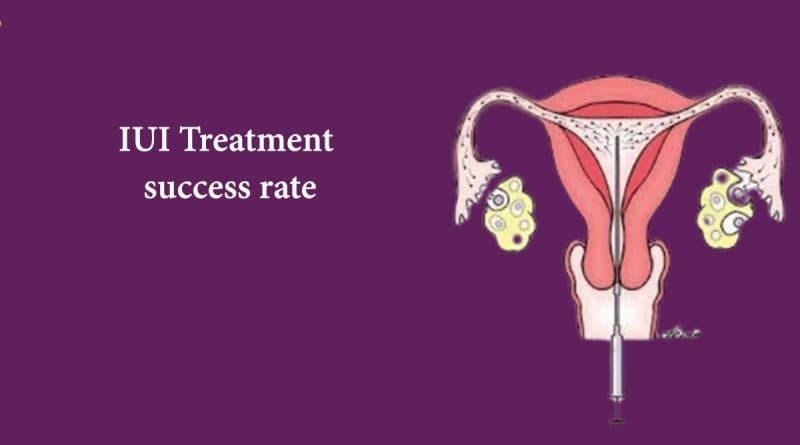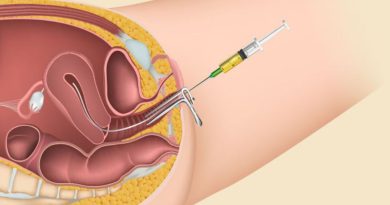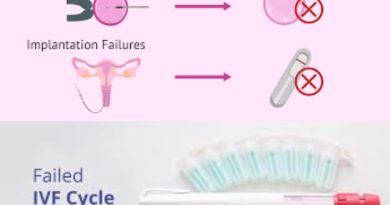IUI Treatment success rate
Why is IUI often recommended for addressing infertility? Intrauterine insemination (IUI) is favored due to its targeted approach and minimal invasiveness, making it a cost-effective option.
IUI is a widely employed fertility treatment that aids individuals and couples in conceiving. It helps placing specially prepared sperm directly into the uterus during the woman’s fertile window.
Curious about IUI treatment success rate and how it can benefit your family planning journey? At Healthy Tips4us, we’ll outline why IUI is often chosen over other assisted reproductive methods and provide insights into what you can anticipate, empowering you to make informed decisions.
What is Intrauterine Insemination (IUI)?
Intrauterine insemination (IUI), sometimes referred to as donor insemination, involves the placement of sperm directly into the uterus, facilitating proximity to the egg and enhancing the likelihood of successful fertilization.
This procedure typically occurs during ovulation, with the aim of the sperm reaching the fallopian tube to fertilize the egg, ultimately leading to pregnancy.
“Did you know that according to a recent report by WHO?
As per World Health Organization (WHO) approximately 1 in 6 people globally experience infertility at some point in their lives. This staggering statistic emphasizes the critical need for accessible and affordable fertility care options. This data highlights the urgency for individuals to consider treatments like Intrauterine Insemination (IUI), which can significantly improve the chances of conception for those facing infertility challenges.”
Who Is Eligible For IUI?
For increased IUI treatment success rate in India or any other country, a woman must have at least one open fallopian tube, ensuring sperm access to the egg. Additionally, she should have a consistent supply of healthy eggs. Eligibility extends to individuals experiencing one or more of the following:
- Issues with cervical mucus hindering sperm movement.
- Undiagnosed infertility challenges.
- Coital problems or dysfunctional sexual behavior, such as erectile dysfunction or sperm allergy in the male partner.
- Irregular ovulation patterns.
- Moderate endometriosis.
- Mild male infertility issues like low sperm counts or motility
- Women prefer a non-partner sperm donor
Comparing IUI Treatment Success Rates to IVF
IVF boasts higher pregnancy rates, approximately 27.3%, as fertilization occurs in a controlled lab environment before transferring the embryo to the uterus.
In contrast, IUI achieves fertilization within the uterus, yielding generally good success rates, considering treatment variables.
IUI Success Rate As A Glace As per Several Factors
| Factors | Success Rate (%) |
| Unexpected fertility, healthy uterus, open fallopian tubes, healthy egg, and sperm | 7-10% per cycle |
| Adding fertility medications to the procedure | 15-25% |
| One blocked and one unblocked fallopian tube | Dependent on blockage location: |
| – Near the ovary: 11.7% | |
| – Closest to the uterus: 38.1% | |
| Male factor infertility with no serious sperm issues | 16.9% |
IUI treatment success rate Facts
The IUI treatment success rate relies on several factors, and it’s important to assess the success rates provided by different centers accordingly.
- Age
Age significantly influences the success of IUI. As you grow older, the likelihood of pregnancy declines due to lower egg quality.
IUI Success Rate by Age
| Age Group | Success Rate (%) | Explanation |
| Early 30s or younger | 20-25% | Women in this age range typically have higher-quality eggs, resulting in higher success rates. |
| 30-35 years | 15-20% | Success rates begin to decrease slightly as egg quality may start to decline. |
| 35-40 years | 10% | Fertility declines further in this age range, leading to lower success rates. |
| Early 40s | 5% | By this age, egg quality significantly decreases, resulting in much lower success rates. |
Several Underlying factors linked to fertility
| Underlying Fertility Issues | Success Rate (%) | Explanation |
| Irregular menstrual cycles or lack of ovulation, requiring medication for conception | Dependent on diagnosis; typically higher with fertility medications | Medication helps regulate cycles and stimulate ovulation, improving the chances of successful conception. |
| Unexplained fertility with healthy eggs and two fallopian tubes | 7-10% per cycle; 15-25% with fertility medications | IUI can be effective, particularly when combined with fertility medications, in boosting conception rates. |
| One open fertility tube due to a blocked fallopian tube | Dependent on blockage location: <br> – Near ovary: 11.7% <br> – Close to uterus: 38.1% | Success rates vary depending on the location of the blockage, affecting sperm and egg interaction. |
| Male factor infertility in the intended father | 16.9% | IUI assists by bringing sperm closer to the egg, aiding natural conception despite male fertility issues. |
IUI Treatment Success Rate by the Number of Follicles
Medication-assisted ovarian stimulation aims to enhance follicle production, increasing accessibility to eggs for fertilization and boosting pregnancy likelihood. However, a delicate balance is crucial to avoid multiple pregnancies, which pose higher risks.
Singleton Focus: Most clinics prioritize singleton pregnancies to minimize risks. If a woman develops four or more follicles, treatment may halt to prevent multiples.
Conception Likelihood: Studies suggest that multi-follicular development increases conception rates with controlled ovarian stimulation during IUI. However, more follicles also elevate the risk of multiple pregnancies.
-
Timing of the Procedure
The timing of IUI is crucial for its success. After determining ovulation timing, the doctor schedules the procedure. It’s a meticulously planned process, with instructions given for medication intake and sperm sample collection. Delays at any stage can reduce conception success.
-
Situations with Lowest IUI treatment Success Rates
IUI faces challenges in specific conditions:
- Moderate to severe endometriosis
- Male partner with low sperm count (unless using a sperm donor)
- Severe fallopian tube disease
- History of multiple pelvic infections
Several Other factors That Can dominate the IUI Success Rate
While undergoing IUI treatment, various factors can impact success rates:
- Healthy Diet: Opt for whole foods and avoid trans fats and excessive sugar intake, which can harm fertility and overall health. Adequate protein intake may support infertility treatments.
- Stress Management: Stress affects many bodily functions. Managing stress during IUI treatment through activities like yoga, meditation, or breathing exercises can be beneficial.
- Sperm Concentration: The sperm sample used in IUI must have a high concentration for successful fertilization.
- Post-IUI Intercourse: Engaging in intercourse after IUI may enhance pregnancy chances, as suggested by research.
- Exercise: While regular exercise is beneficial, strenuous activities can lower reproductive levels. Opt for lower-intensity exercises like walking, swimming, or yoga during infertility treatments like IUI.
IUI treatment can work well for some people, if done under the guidance of experts with huge experience. It is a good option if the patient has trouble ovulating or if the cause of the infertility is unknown. It’s also helpful if your partner has minor issues with his sperm. The IUI treatment success rate depends on various factors, such as your age, diagnosis, and when you undergo it.
FAQ’s
-
How many rounds of IUI are typically recommended?
Most physicians suggest trying 3 to 6 cycles of IUI before considering IVF, especially for women under 35.
-
Is IUI an invasive or surgical treatment?
Intrauterine insemination (IUI) is a fertility treatment that is non-invasive or non-surgical.
-
What risks are involved in intrauterine insemination (IUI)?
The risk for complications in IUI is minimal. However, there’s a slight chance of hyperstimulation with ovulation induction medications. Proper technique and monitoring can help minimize risks. In rare cases, complications may include multiple pregnancies, infection, and uterine cramping.
-
Are there different recommendations for women over 35?
Yes, instructions may vary for women aged 35 and older. Fertility declines with age, so chances of conceiving through IUI might be lower.



